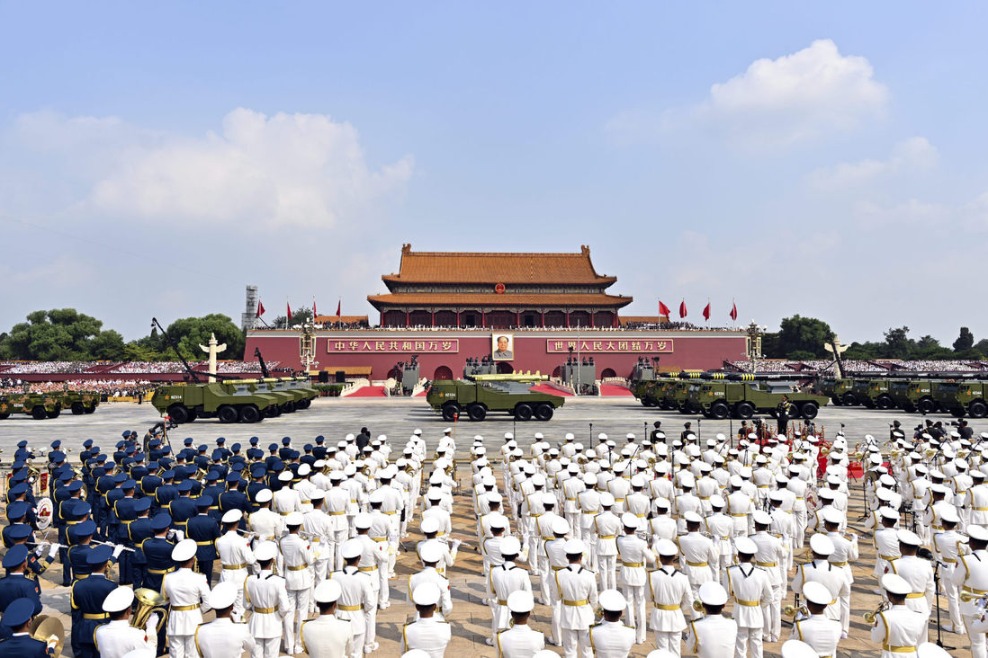Promoting the value of eco-products with 'green GDP'


The concept “lucid waters and lush mountains are invaluable assets” was written into the report that President Xi Jinping delivered in 2017 at the 19th CPC National Congress, making it an important part of Xi Jinping Thought on Socialism with Chinese Characteristics for a New Era. This has clarified the relationship between development and environmental protection—where protecting the ecological environment is protecting productivity and improving the ecological environment is developing productivity.
According to the communique of the fifth plenary session of the 19th CPC Central Committee, China should continue to uphold the concept of “lucid waters and lush mountains are invaluable assets,” optimize the layouts of the territorial space, improve supporting policies on ecological functional zones, attach great importance to protecting the ecological environment and providing more quality eco-products, establish a value realization mechanism for eco-products, improve market-based and diversified eco-compensation policies, and promote total resource management, scientific allocation, well-rounded ecological conservation and cyclic utilization.
In recent years, China has attached greater importance to the construction of ecological civilization. The CPC Central Committee and State Council have made a slew of important strategic arrangements and institutional innovations in this regard, including exploring a value realization mechanism for eco-products, developing ways of work and life that help conserve resources and protect the environment, and establishing a market-based and diversified eco-compensation mechanism. These arrangements and innovations will exert far-reaching significance on China’s resource conservation and environmental protection as well as on the country’s socio-economic development.
GDP measures the monetary value of final goods and services—that are bought by the final user—produced in a country in a given period of time. As an important criterion for evaluating a country’s macroeconomy, GDP is a powerful statistical indicator of national economic performance. However, the current national economic accounting system does not factor in the environmental costs of economic growth; therefore it cannot reveal in a quantitative way the ecological system’s contributions to economic growth.
Therefore, the United Nations Statistics Division released and revised the System of Environmental-Economic Accounting (SEEA) in 1989, 1993, 2003 and 2013, which deducts the cost of natural resource consumption and the cost of pollution damage from conventional GDP to better reflect the achievements of economic and social development and the national economic welfare.
To make up for the deficiency in conventional GDP accounting, the State Environmental Protection Administration (the predecessor of the Ministry of Ecology and Environment) and the National Bureau of Statistics jointly launched the “green GDP” accounting in 2006, which factors in the environmental costs of economic growth into the conventional GDP. The report delivered at the 18th CPC National Congress put forth that resource consumption, environmental damage and ecological benefits should be integrated into the evaluation system of social and economic development.
The CPC Central Committee and the State Council, or China’s cabinet, in September 2015 published a reform plan for promoting ecological progress in the country. Based on requirements of the reform plan, the Chinese Academy of Environmental Planning under the Ministry of Ecology and Environment has become the first in the country to put forth comprehensive accounting indicators for Gross Economic-Ecological Product (GEEP).
The GEEP accounting system integrates resource consumption, environmental damage and ecological benefits into the evaluation system of social and economic development. GEEP follows the principle of GDP accounting and carries out value accounting for the final products of ecological and economic systems. Based on GDP, GEEP considers the ecological environmental damage caused by human beings in economic product activities and the benefits of the ecological system to the economic system.
From 2004 to 2019, China’s ecological degradation cost increased from 511.82 billion yuan in 2004 to 1.89 trillion yuan in 2017, and from then on, declined to 1.69 trillion yuan in 2019. From 2004 to 2019, the ecological degradation index (ecological degradation cost against the GDP) declined from 3.05 percent to 1.71 percent. The green GDP increased from 16.2 trillion yuan to 96.1 trillion, with an average annual growth rate of 12.6 percent, which is on par with the average annual GDP growth rate during the same period.
China’s gross ecosystem product (GEP) increased from 70.6 trillion yuan in 2015 to 92.1 trillion yuan in 2019, an increase of 31 percent while the GEEP increased from 119.3 trillion yuan in 2015 to 156 trillion yuan in 2019, an increase of 30.7 percent with an average annual increase of 7.8 percent. It’s fair to say that China has realized synchronized growth of economic value and ecological value.
In terms of different provinces, Inner Mongolia autonomous region, Fujian province, Chongqing, Sichuan province, Guizhou province, Beijing, Shanghai and Hainan province witnessed a relatively higher average annual growth rate of GEEP—all above 9.5 percent. As ecological civilization demonstration zones, Fujian, Guizhou, Jiangxi and Hainan provinces have explored the establishment of a market-based, sustainable value realization mechanism for eco-products in which government takes the lead and enterprises and the public also participate, setting a good example for the ecological civilization construction nationwide.
The construction of China’s ecological civilization has entered a critical period, which calls for more quality eco-products to meet people’s ever-growing demands for a beautiful environment. China will continue to uphold the concept of people-centered development, provide more quality eco-products and make the full realization of the value of eco-products a driving force for turning the blueprint for a more beautiful China into reality and realizing harmonious coexistence between man and nature.
To start with, China should actively press ahead with the implementation of a mechanism for value realization of eco-products under the guidance of Xi Jinping Thought on Ecological Civilization. The Ministry of Ecology and Environment is actively exploring the establishment of a mechanism for value realization of eco-products by promoting eco-compensation policies in major ecological functional zones, ecological conservation red lines and protected natural areas. The central government has selected national-level pilot regions (Zhejiang province, Jiangxi province, Guizhou province, Qinghai province, Fujian province, Hainan province, Lishui city in Zhejiang province, and Fuzhou city in Jiangxi province) for exploring the establishment of a mechanism for value realization of eco-products. This will help establish a market-based, sustainable value realization mechanism for eco-products in which government takes the lead and enterprises and the public also participate.
Secondly, China should establish a pricing mechanism for eco-products. Accounting the monetary value of ecological assets and ecosystem services is the first and foremost step for value realization of eco-products. A proper pricing mechanism for eco-products should be established to create a value chain. This will give more incentive to producers of eco-products and properly coordinate the interests of eco-product producers, investors and beneficiaries. In addition, the eco-compensation mechanism should be improved with market-based, diversified eco-compensation policies.
Thirdly, China should integrate the indexes for ecological capital and ecological environment into the planning system for territorial space to let ecological capital and ecological environment take the lead in the planning process. Balanced growth between natural and ecological capital and social and economic development will help with development of the country’s territorial space by making the decision-making process more scientific.
Finally, China should figure out the supply quantity, quality and spatial layout of eco-products, get a clear understanding of the country’s total ecological resources, and promote the construction of the ecological and environmental rights and interests trading market, which will provide technical support for formulating ecological product-related investment and financing policies.
Wang Jinnan is an academician of the Chinese Academy of Engineering and head of the Chinese Academy of Environmental Planning; and Ma Guoxia is a research fellow of the Chinese Academy of Environmental Planning.
The opinions expressed here are those of the writer and do not necessarily represent the views of China Daily and China Daily website.


































